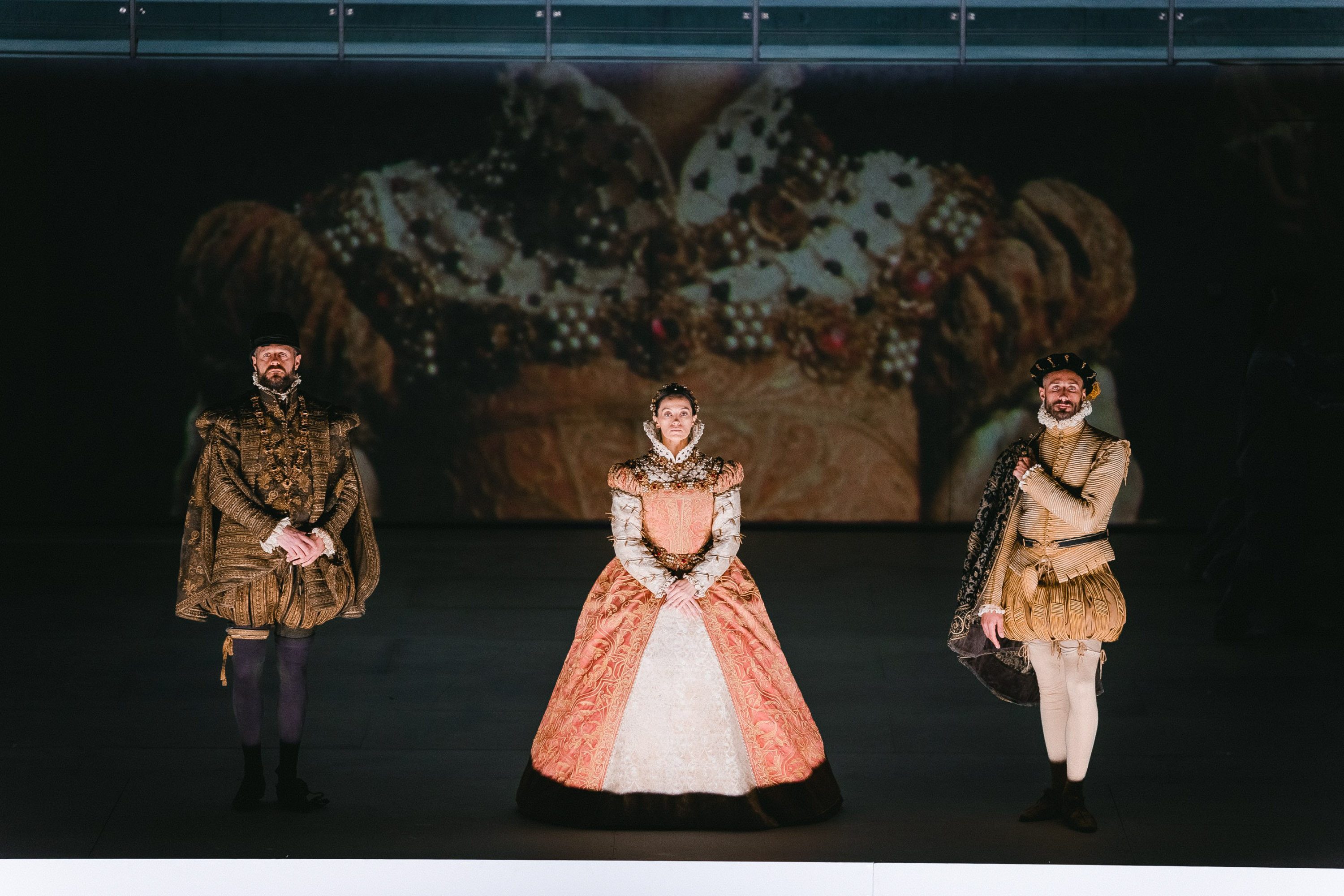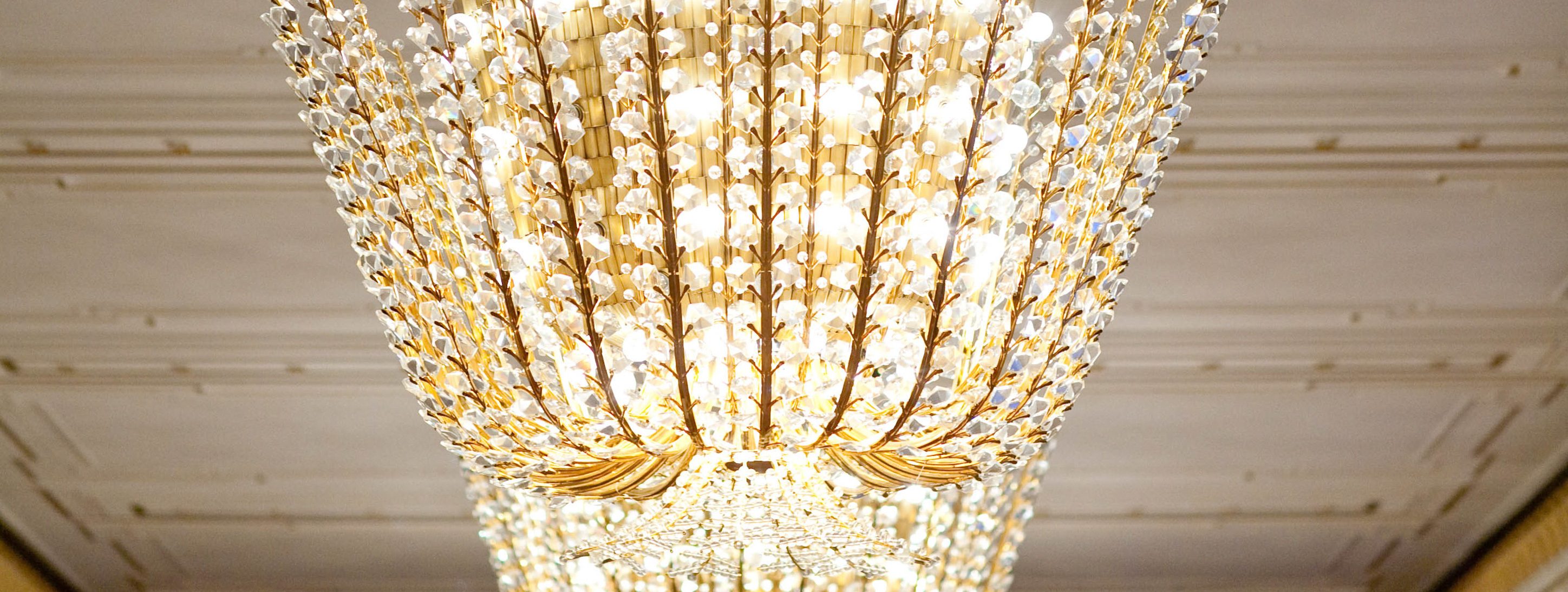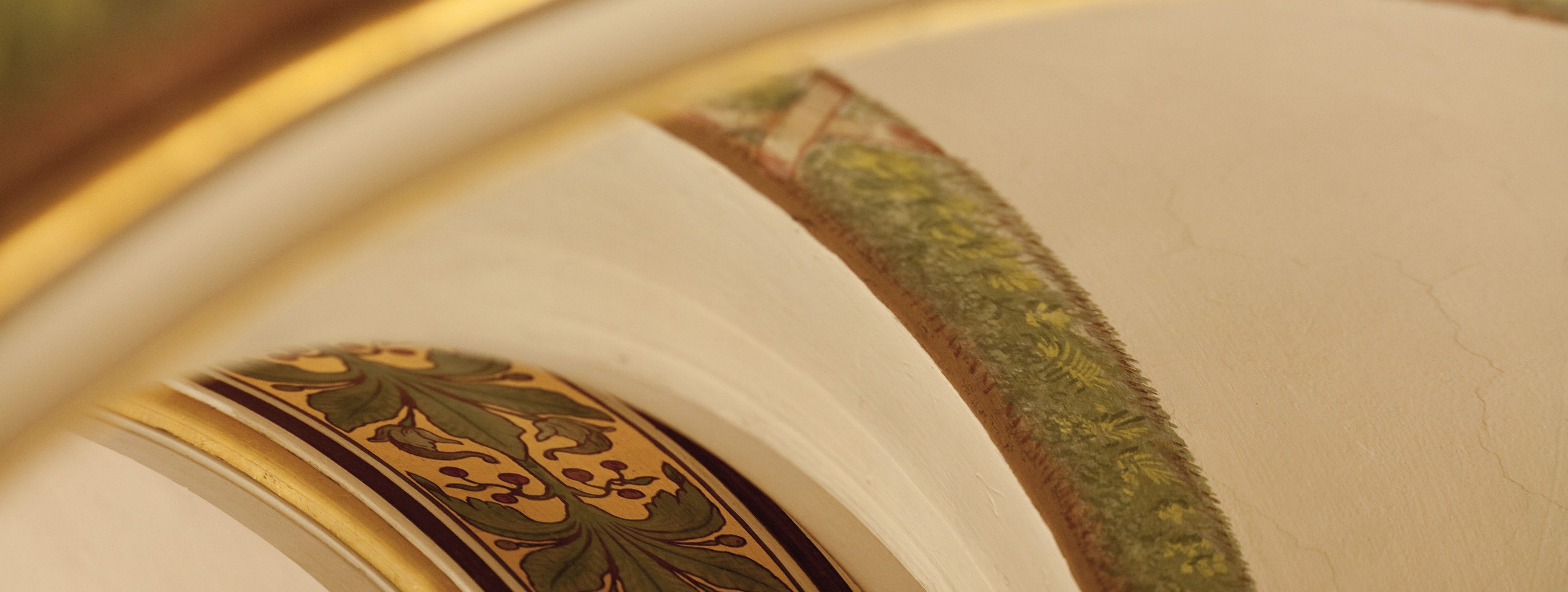
Short Summary
Don Carlo, heir to the Spanish throne, was supposed to marry the French princess Elisabeth.
After meeting for the first time, the two are in love. Surprisingly, the Spanish King Philip II announces that he wants to marry Elisabeth himself. Elisabeth complies for reasons of state. The liberal Marquis Posa advises his desperate friend Don Carlo to become politically active for a better future for Flanders. However, this puts Don Carlo and Posa in dangerous opposition to the overpowering Grand Inquisitor.
Don Carlo
Storyline
Emperor Charles V - once the most powerful ruler in the world - laid down the insignia of his power in the monastery of San Yuste to end his life in the solitude of spiritual meditation.
Don Carlo, Infante of Spain, commemorates his happy meeting with the French princess Elisabeth, who had been promised to him, in Fontainebleau in the monastery of San Yuste. However, Elisabeth was then married by his father, King Philip II, and made queen and thus Carlo's stepmother. Carlo is met by his childhood friend, the Marquis of Posa, who has returned from the Flandrian provinces, which were oppressed by the Spanish. Posa convinces Don Carlo to go to Flanders as the savior of the threatened people. Philip and Elisabeth enter the monastery to pray at the tomb of the supposedly deceased emperor.
In a garden not far from the monastery, Princess Eboli entertains the retinue of ladies-in-waiting with a Moorish song. When the queen appears, the Marquis of Posa is reported. The Marquis manages to secretly deliver a message from Carlo to the Queen and request a secret audience for him. Princess Eboli, the king's mistress, misunderstands his hints and believes that the Infante has fallen in love with her.
Alone with the queen, Carlo can no longer hide his feelings. Elisabeth, who still loves the prince but is aware of her duty as queen, implores the desperate man to renounce the fulfillment of his love.

When the king finds his wife unaccompanied, he expels the Countess of Aremberg, who is responsible for this, from court. Elisabeth bids farewell to the exile.
Posa describes the misery of the people of Flanders to the ruler. Philip, who takes a liking to Posa's courageous language, decides to draw him close to him as his confidant, but warns him of the power of the Inquisition. Don Carlo has accepted an invitation to a rendezvous in the royal park in Madrid, assuming that Elisabeth has sent it to him. When a veiled woman approaches, he storms her with declarations of love. Too late, he realizes that he has revealed his secret to Princess Eboli. Posa arrives and tries to silence the dangerous confidant, but Carlo falls into his arms. The princess, wounded in her pride, swears revenge. The Marquis has his friend hand over all the political letters that could endanger him.
A large crowd has gathered in front of Madrid Cathedral to attend an auto-da-fé, the public execution of heretics condemned by the Inquisition. At the head of a deputation from Flanders, Don Carlo approaches the king to demand the regency of the subjugated provinces. When the king rejects this request, the prince, overcome with rage, draws his sword. None of the greats of the realm come to the aid of the threatened ruler until Posa disarms his friend and is then elevated to duke by Philip. The auto-da-fé continues. The flames of the pyre blaze up, while a voice from heaven promises the victims eternal peace.

King Philip laments the loneliness and burden of his office. Conflicted by his conscience, he seeks advice from the blind Grand Inquisitor.
The latter encourages him in his intention to punish the Infante's rebellion with the utmost severity, but in turn demands the life of the Marquis of Posa, whom he suspects of being a free spirit. Philip initially resists, but ultimately submits to the power of the Church.
The queen makes a lively complaint to her husband about the theft of her jewelry box and finds it on the king's desk. When Philip opens the casket and discovers the portrait of the Infante inside, he accuses his wife of adultery. Princess Eboli and the Marquis of Posa rush to the aid of the fainting princess. Alone with the queen, the princess confesses her betrayal of Carlo and her secret liaison with the king. She is banished to a convent by Elisabeth.

Posa visits the imprisoned Infante in the dungeon to explain his actions and bid him farewell. With the help of the letters given to him, he has deflected any suspicion of conspiracy with Flanders from Carlo to give his friend the opportunity, as the future king, to help the oppressed peoples gain their right to live.
A shot from the ambush hits the Marquis in the back and, dying, he refers his friend to the Queen, who wishes to see Carlo one last time. The king enters the dungeon to return the sword to his son. Carlo accuses him of murdering his friend. The outraged people demand the Infante's release. When they turn against the king in rebellion, the aged Grand Inquisitor takes up arms. The people fall to their knees before his threat.
In the monastery of San Yuste, the Queen awaits the Infante, who is about to leave for Flanders, for a final farewell. The two lovers renounce all fulfillment of their love. The King and the Grand Inquisitor join them. As the henchmen of the Inquisition are about to lay hands on the prince, a mysterious monk, whose voice is reminiscent of that of the secluded emperor, takes Don Carlo away from his pursuers.
Inspired by a visit to the Kyoto Costume Institute in Japan, director Kirill Serebrennikov brings the plot of Don Carlo into a contemporary context. He also drew inspiration for his stage design from this institute, where original objects from all eras and cultures are kept, prepared and stored in order to protect them from decay.
Serebrennikov's examination of this transience opened up another dimension of Verdi's opera: the knowledge of the transience of man, his passions, his efforts and his deeds, the flow of time that noticeably or imperceptibly erases and destroys everything man has made. Alongside these two dimensions - the remnants of the 16th century and the present day - there is a third level, an intermediate zone in which past and present intermingle.
The Marquis of Posa, the only figure who is not historically documented and who embodies the Enlightenment and modern man, also plays an important role in the production. In Serebrennikov's production, he plays an activist who addresses the consequences of the overproduction and overconsumption of textiles and clothing.
Verdi worked on this opera, with interruptions, for over twenty years. There are no fewer than seven versions created with the composer's direct involvement. Italian productions of the five-act work, which premiered in Paris, gave Verdi the opportunity to make radical rewrites and to recompose entire scene complexes. A condensed four-act version was first presented at La Scala in Milan in 1884 - it will also form the basis of the new Viennese production.
















